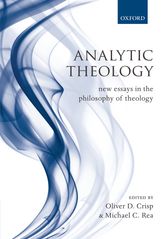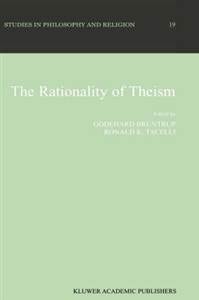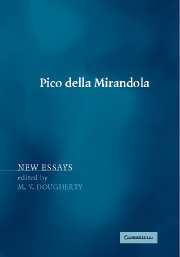Postmortem Survival Articles
Since 2009, Dr. Sudduth has published a variety of reviews and articles on postmortem survival (in journals and edited collections). Sudduth’s current work in this area focuses on the concept of survival, the nature of empirical arguments for survival, inference to best explanation, and the application of formal epistemology to classical survival arguments.
- “The Augustine-Braude Bigelow Survival Debate: A Postmortem and Future Directions” (Journal of Scientific Exploration, Fall 2024).
- “Response to Jim Tucker,” Journal of Scientific Exploration, 36:1 (2022)
- “The James Leininger Case Re-examined,” Journal of Scientific Exploration, 35:4 (2021).
- Review of Jim Matlock, Signs of Reincarnation, Journal of Scientific Exploration 35:1 (2021)
- “Is Postmortem Survival the Best Explanation of the Data of Mediumship?” in The Survival Hypothesis: Essays on Mediumship, ed., Adam Rock (McFarland, 2013).
- “A Critical Response to David Lund’s Argument for Postmortem Survival.” Journal of Scientific Exploration (Summer 2013).
- Review of Chris Carter, Science and the Near-Death Experience: How Consciousness Survives Death. Rochester: Inner Traditions, 2011. Journal of Parapsychology, 75:1 (October 2011).
- “Super-Psi and the Survivalist Interpretation of Mediumship,” Journal of Scientific Exploration, 23:2 (2009).
- Review of David Fontana, Life Beyond Death: What Should We Expect? Journal of Scientific Exploration, 23:3 (2009).
Philosophy of Religion Articles
Dr. Sudduth has published numerous articles in philosophy of religion in leading academic journals such as Faith and Philosophy, Religious Studies, the International Journal for the Philosophy of Religion, and the European Journal for the Philosophy of Religion. Articles include:
- “Revisiting the ‘Reformed Objection’ to Natural Theology,” European Journal for Philosophy of Religion (November 2009).
- “Reformed Epistemology and Christian Apologetics,” Religious Studies (September 2003).
- “Can Religious Unbelief be Proper Function Rational?” Faith and Philosophy (July 1999)
- “The Internalist Character and Evidential Implications of Plantingian Defeaters,” the International Journal for Philosophy of Religion (June 1999).
- “Calvin, Plantinga, and the Natural Knowledge of God: A Response to Beversluis,” Faith and Philosophy (January 1998).
- “The Prospects for ‘Mediate’ Natural Theology in John Calvin,” Religious Studies (March 1995).
- “Alstonian Foundationalism and Higher-Level Theistic Evidentialism,” the International Journal for Philosophy of Religion (February 1995).
His work in philosophy of religion has been featured in books published by Oxford University Press, Cambridge University Press, Continuum, and Kluwer Academic Press.
 “The Contribution of Religious Experience to Dogmatic Theology” in Analytic Theology, ed. Michael Rea and Oliver Crisp (Oxford University Press, 2009).
“The Contribution of Religious Experience to Dogmatic Theology” in Analytic Theology, ed. Michael Rea and Oliver Crisp (Oxford University Press, 2009).
“Sudduth argues that dogmatic theology—the ‘examination and systematic development of dogmas, ecclesiastical formulated and core theological beliefs ostensibly based on scripture’—must take account of the role played by religious experience as a source of justification for theological beliefs. In the course of making their arguments, furthermore, Sudduth argues that religious experience plays a vital role in natural theology (the enterprise of trying to arrive at the knowledge of God by way of a priori or empirical argument).” – Michael Rea, “Introduction.”
“Pico della Mirandola’s Philosophy of Religion” in Miraculum Est Homo: The Renaissance Philosopher Giovanni Pico della Mirandola (Cambridge University Press, 2008).
“Michael Sudduth treats several of Pico’s works from the standpoint of contemporary philosophy of religion . . . . Sudduth emphasizes the religious contours of Pico’s syncretic approach to various faith traditions, ultimately underscoring the latent medievalism that pervades Pico’s outlook. He evaluates Pico’s syncretic approach within a taxonomy provided by contemporary discussants of religious pluralism, ultimately concluding that Pico defends a Christosyncretism that does not treat all religious traditions as equal. Rather, Pico’s syncretism is one that privileges the specifically Christian revelation of the divine.” – Michael Dougherty “Introduction”
 “John Calvin” in History of the Philosophy of Religion, ed. Nick Trakakis and Graham Oppy (Oxford University Press, 2009).
“John Calvin” in History of the Philosophy of Religion, ed. Nick Trakakis and Graham Oppy (Oxford University Press, 2009).
“The French Genevan Reformer John Calvin (1509-1564) holds an important place in the development of the theology of the Protestant Reformation. Building on insights articulated by other Reformers such as Melanchthon, Bucer, and Zwingli, Calvin is perhaps best known for his careful and penetrating biblical exegesis and the production of a compendium of Christian theology that strongly influenced the emergence of Reformed orthodoxy in the latter part of the sixteenth century. Calvin’s teachings on divine providence and predestination, the doctrine of sin, and the Christian’s union with Christ, were among his influential contributions to Reformed theology. But Calvin is also known for his doctrine of the natural knowledge of God, roughly, the idea that human persons have some knowledge of God from the light of nature and independent of Scriptural revelation. The relationship between this doctrine and traditional natural theology (i.e., arguments for the existence and nature of God) has been a point of controversy among Calvin commentators and philosophical theologians in the Protestant tradition. In this entry I outline this controversy and show why Calvin should be regarded as having made an important, positive contribution to natural theology.” – Michael Sudduth
 “Reformed Epistemology and the Recontextualizing of Natural Theology” in Philosophy of Religion: Contemporary Practice and Method: New Essays, ed. Rolfe King and David Cheetham (Continuum Press, 2008).
“Reformed Epistemology and the Recontextualizing of Natural Theology” in Philosophy of Religion: Contemporary Practice and Method: New Essays, ed. Rolfe King and David Cheetham (Continuum Press, 2008).
“In this paper I have examined the implications of two approaches in religious epistemology for rational reflection on God within the perspective of faith. I have argued that theistic evidentialism – when employed as a principle of reflection on Christian belief in God – entails a particular conception of natural theology, namely as a rational foundation or basis for dogmatic theology. This view of natural theology as an independent system of theology separate from the theology of scripture has dominated post-Enlightenment philosophical theology. This conception of natural theology, I have argued, stands in sharp contrast to how many of the early Protestant scholastics thought of natural theology, namely as a rational exploration of the doctrine of God revealed in Scripture. The distinctive contribution of Reformed epistemology at this juncture is a challenge, not merely to the philosophical tradition of evidentialism, but to those segments of the post-Enlightenment Christian theological tradition that inherited from evidentialism a particular way of relating faith and reason. . . .Reformed epistemology’s implicit critique of the pre-dogmatic view of natural theology has opened up the possibility of a genuine re-evaluation of the relevance and function of natural theology within the perspective of faith.” – Michael Suddduth
 “Proper Basicality and the Evidential Significance of Internalist Defeat: A Proposal for Revising Classical Evidentialism” in The Rationality of Theism (Kluwer Academic Press, 1999).
“Proper Basicality and the Evidential Significance of Internalist Defeat: A Proposal for Revising Classical Evidentialism” in The Rationality of Theism (Kluwer Academic Press, 1999).
“Several recent contributions in Anglo-American philosophy of religion continue to address questions in the ongoing dialogue between evidentialist and Reformed epistemologies of religious belief. These questions typically focus on the claim of the Reformed epistemologist that theistic belief is, at least for some people under some circumstances, properly basic (i.e., rational, justified, or warranted in the absence of propositional evidence). In this paper I propose an argument for the compatibility of these prima facie opposed stances on the positive epistemic status of theistic and Christian belief. My argument focuses on the evidential significance and implications of defeating conditions construed in an internalist sense. I argue that internalist defeaters provide a framework for revising classical evidentialism and fine-tuning the Reformed epistemologist’s account of the conditions under which theistic belief is properly basic. My defeater-based evidentialism involves an evidentialist requirement avoids several of the shortcomings of the classical evidentialist requirement, and it is logically consistent with the idea of properly basic theistic belief, even where the proper basicality thesis is developed along externalist lines.” – Michael Sudduth
Sudduth has also contributed an extensive article on defeaters in epistemology to the Internet Encyclopedia of Philosophy.
“Defeaters in Epistemology,” Internet Encyclopedia of Philosophy (December 2008).


 Follow
Follow